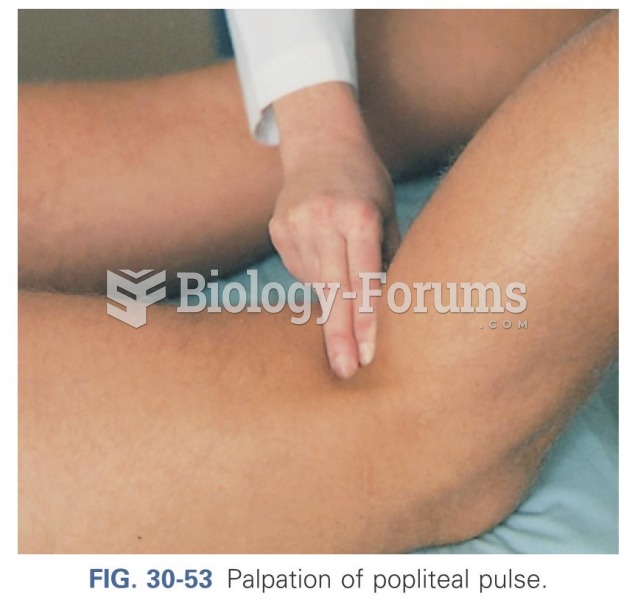|
|
|
Complications of influenza include: bacterial pneumonia, ear and sinus infections, dehydration, and worsening of chronic conditions such as asthma, congestive heart failure, or diabetes.
A good example of polar molecules can be understood when trying to make a cake. If water and oil are required, they will not mix together. If you put them into a measuring cup, the oil will rise to the top while the water remains on the bottom.
Your chance of developing a kidney stone is 1 in 10. In recent years, approximately 3.7 million people in the United States were diagnosed with a kidney disease.
Blood is approximately twice as thick as water because of the cells and other components found in it.
Many supplement containers do not even contain what their labels say. There are many documented reports of products containing much less, or more, that what is listed on their labels. They may also contain undisclosed prescription drugs and even contaminants.
 Allen Test: A patent ulnar artery reveals the return of palm perfusion despite radial artery compres
Allen Test: A patent ulnar artery reveals the return of palm perfusion despite radial artery compres
 In 1891 William Dean Howells championed the poetry of Emily Dickinson: “This poetry is as characteri
In 1891 William Dean Howells championed the poetry of Emily Dickinson: “This poetry is as characteri





